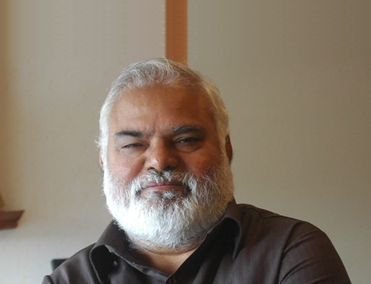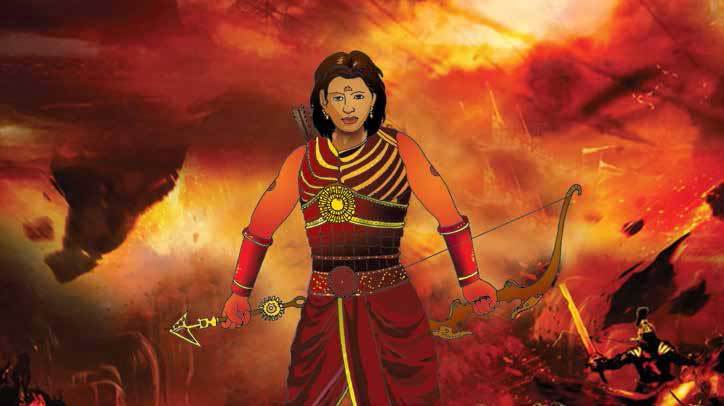
In the 15th June issue of Corporate Citizen, we published a guest editorial by noted corporate leader, Ganesh Natarajan, who himself lives by gratitude and that was the theme of his piece. It reminded me of a quote by John F Kennedy, which states, “as we express our gratitude, we must never forget that the highest appreciation is not to utter words, but to live by them.’’
It also reminds me of the Mahabharata, an epic narrative of the Kurukshetra War between Pandavas and Kauravas, in which Karna, generally considered as an anti-hero, is a role model of what unconditional gratitude signifies.
Karna, as we all know was brought up by a Charioteer couple belonging to a low caste and hence was termed as `Sutaputra’ (son of the lowly caste). He was humiliated and looked down upon by the society, particularly by the entire clan of Pandavas and great sages of those times. In reality, he was the son of Kunti, Queen of the Pandavas, who disowned him as soon as he was born (as she bore him by the mere wish of having a child of the Sun). She put him in a basket and set it off in the river. This was found by the Charioteer couple who adopted him as their son. He grew to be a great warrior than Arjuna, but no one acknowledged his talent, due to his caste.
Duryodhana, the eldest son of the Kauravas,was the only one who took a radical and unconventional approach towards Karna – loving and respecting him for his ability as a supreme warrior and an intellectual. He did not care from which lineage he came from. Duryodhana not only trusted him and took his advice at all times, but he elevated Karna to a King (Angharaj), on the basis of his exemplary abilities as a warrior. Karna, therefore stood by him all through his life, as a token of deep gratitude.
In those times, the caste system was so overpowering that, although Karna was a greater warrior than Arjuna, he was denied tutorship by several sages like Dronacharya. He was also humiliated during the Swayawar of Draupadi, who reminded him of his lowly caste.
“I am not fighting this war to gain anything. After Ganga putra Bheesma, I am the most unfortunate lone warrior in this battlefield. Fighting for nothing. He has his Pratigya and hence he is helpless. But I am not helpless. I can walk away from the war. But No, I won’t. I cannot leave my friend when he needs me the most. I know he is wrong but that has nothing to do with my gratitude’’
When the Mahabharata War was to be waged, Krishna was worried that Karna, who possessed better skills than Arjuna, would ensure the defeat of the Pandavas. Krishna approaches Karna to tell him the truth about his lineage. Despite this revelation, Karna refuses to leave the side of Duryodhana. The following extract of the dialogue published in lonelyphilospher. com captures the essence, hence I am tempted to reproduce the excerpts:

Krishna: Do you know that you are the eldest Kunti Putra. You deserve to be the king of Hastinapura. Come, join us. All the Pandavas will welcome you. Draupadi will become your queen, why are you fighting with Duryodhana?
Karna: They are not my brothers. And I have no wish to become the king. Thank you for telling me that I am the eldest Kunti Putra, I have been searching this answer all my life.
Krishna: Now that you know who you are, why don’t you join the camp of Dharma?
Karna: With all due respect to you, who are you to define what my Dharma is? I am aware of my Dharma and I am doing it every single day.
Krishna: And what is your Dharma, may I know?
Karna: My Dharma is to protect my friend when he needs me the most.
Krishna: Even at the cost of siding with a force which is doing Adharma towards hundreds of thousands of men? Do you know that your presence in the Kaurava camp ensures that Dharma has to fight harder for victory?
Karna: The force has its own reasons, I have my own reasons. Where were you when Drona denied me to teach lessons because I do not belong to a royal family? Where was Dharma when I was not allowed to compete in the Swayamvar of Draupadi and I was insulted of being a person from lowly caste? Where was Dharma when I had to answer every single person how a suta putra became the king? Dharma or righteousness for that matter has never been my friend. I have only one friend and only one Dharma. It’s called Duryodhana.
Krishna: Do you agree that Duryodhana is wrong and that he is the only one responsible for this war?
Karna: I do.
Krishna: What is your motivation for fighting this war? Pandavas have their reasons, Duryodhana has his, what is your reason? What will you gain from this war?
Karna: I am not fighting this war to gain anything. After Ganga-putra Bheesma, I am the most unfortunate lone warrior in this battlefield.
Fighting for nothing. He has his Pratigya and hence he is helpless. But I am not helpless. I can walk away from the war. But No, I won’t. I cannot leave my friend when he needs me the most. I know he is wrong but that has nothing to do with my gratitude.’’
“ Thus, there are two lessons to learn from the life of Karna. The most important being, one must show gratitude to those who have helped you or taken care of you. Parents, for example, are the ones who look after us and nurture us, unconditionally. Just how many of us are grateful to them? Sadly, not, very many ’’
It is rare to find such sense of gratitude in today’s world. It is an era when most of us see our vested interests and switch loyalties accordingly.
Of course, there is a flip side to Karna’s unflinching gratitude for Duryodhana. The renowned spiritual master, Sadhguru says in one of his writings, “…Because of his gratitude to Duryodhana, somewhere, he believed he must hate these five people (Pandavas). Though there was no hatred in his heart, he worked it up all the time and came out meaner than anyone. If Shakuni said one mean thing, he would say the next mean thing. And he wouldn’t stop there because he was always working up his hatred trying to prove his loyalty and be grateful for what Duryodhana had done for him. Somewhere deep inside, he knew that everything he was doing was wrong, but his loyalty was so strong that he continued to do it. He was a wonderful guy but he continuously made mistakes. All our lives are like that – if we make one wrong choice, it takes ten years to recover, isn’t it? He never recovered because he made too many wrong turns.’’
Thus, there are two lessons to learn from the life of Karna. The most important being, one must show gratitude to those who have helped you or taken care of you. Parents, for example, are the ones who look after us and nurture us, unconditionally. Just how many of us are grateful to them? Sadly, not, very many
As for me, I am an ardent fan of Karna. I believe that friendship is not subjected to `ifs’ and `buts.’ And also, where can one find great men like Duryodhana? In this era, Krishnas can be seen everywhere.
By Dr (Col) A. BAlASUBrAmAniAn
editor-in-chief